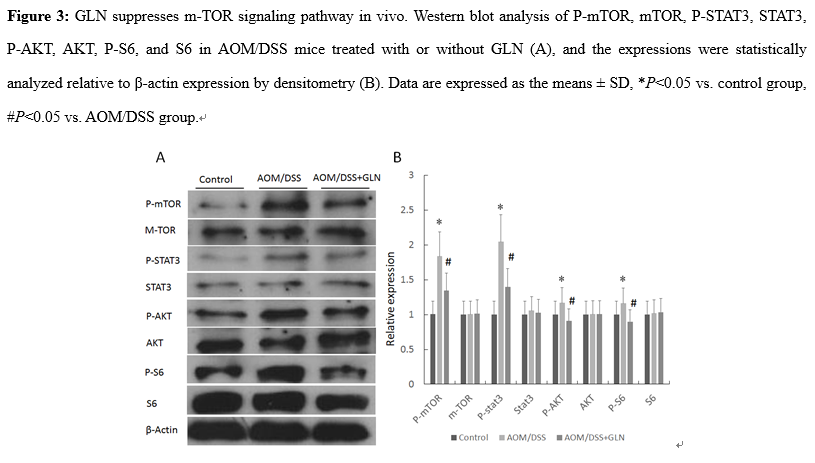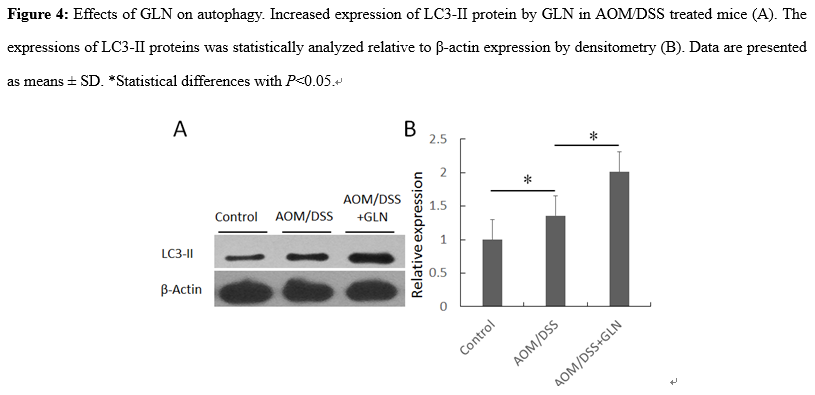Yun Tian, Yingrui Fan, Li Wang, Keming Wang
Department of Oncology, the Second Affiliated Hospital
of Nanjing Medical University
Objective:Glutamine shows a protective role in
colitis and colitis-associated colorectal cancer (CAC), however, the protection
mechanisms are largely unknown so far. DEP domain-containing mTOR-interacting
protein (DEPTOR)/mammalian Target of Rapamycin (mTOR) signaling plays an
important role in carcinogenesis. The present study investigated a molecular
mechanism for the protective effect of glutamine in murine model of
azoxymethane (AOM)/dextran sulfate sodium (DSS)-induced CAC. Method: The
DSS/AOM model of CAC was employed in this study according to our experimental
treatment protocol reported previously. The effects of glutamine of DEPTOR/mTOR
signaling and protein light chain 3 (LC3) were evaluated by pathological
examination, Western blot analysis and immunochemical examination. Result: Administration
of glutamine was associated with attenuated development of CAC (Table1).
Increased expression of DEPTOR (Figure1, 2) and decreased expressions of
factors of mTOR signaling including phosphor-mTOR, phosphor-STAT3,
phosphor-Akt, and phosphor-S6 were observed in AOM/DSS mice receiving glutamine
(Figure3). In addition, oral glutamine was associated with increased
expression of LC3-II in AOM/DSS mice (Figure4). Conclusion: The present
study indicates that regulation of the DEPTOR/mTOR signaling may be an
important mechanism for glutamine in prevention against development of CAC. In
addition, the chemopreventive effect of dietary glutamine on CAC is, at least
in part, associated with induction of autophagy.
Key
Words: Colitis Associated Colorectal Cancer Glutamine
DEP






Copyright © 1998 - 2026 Chinese Society of Clinical Oncology(CSCO). All Rights Reserved
Contact Us
EMAIL:office@csco.org.cn
international@csco.org.cn
Phone:86(10)67726451 (Beijing)
86(25)84547290 (Nanjing)